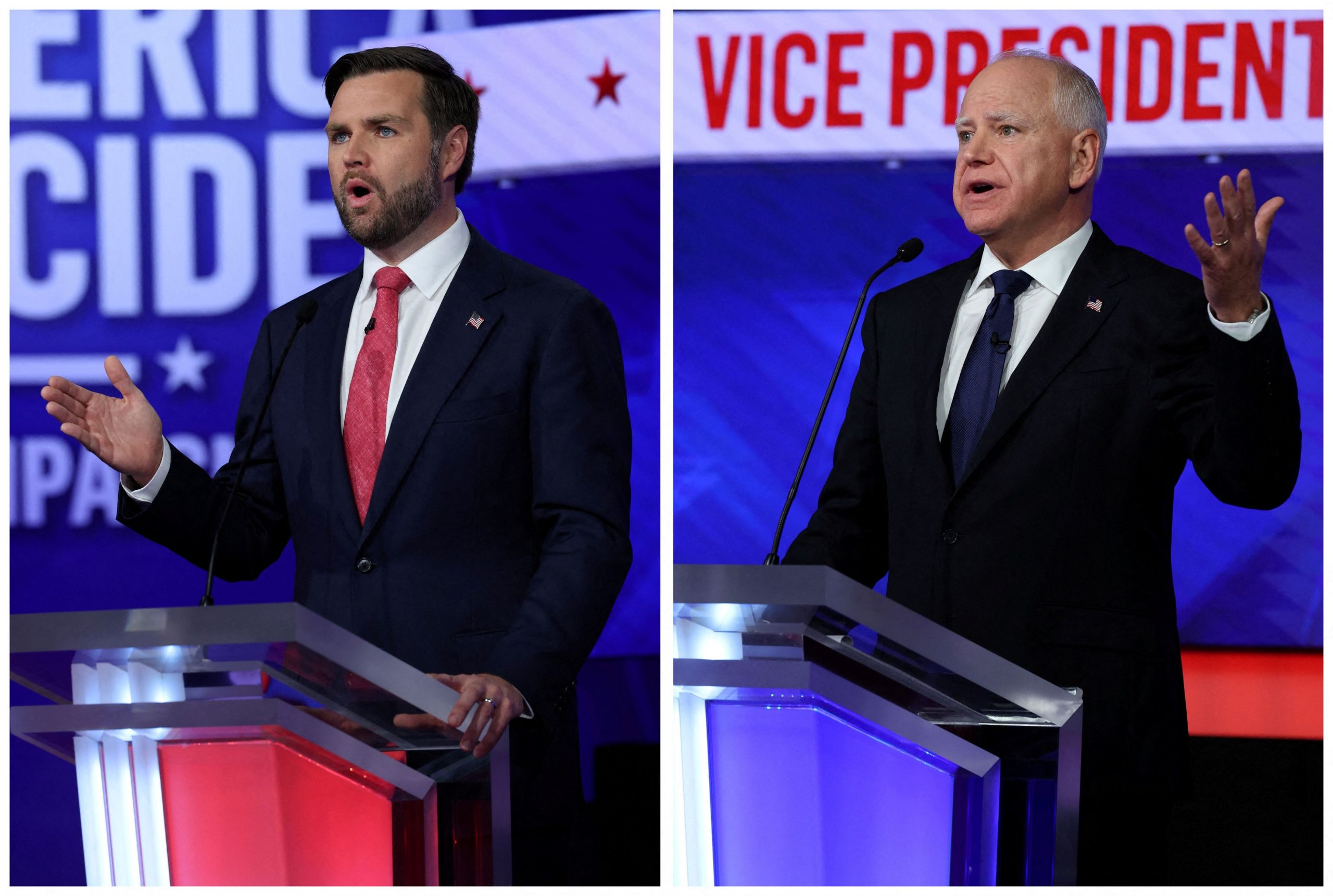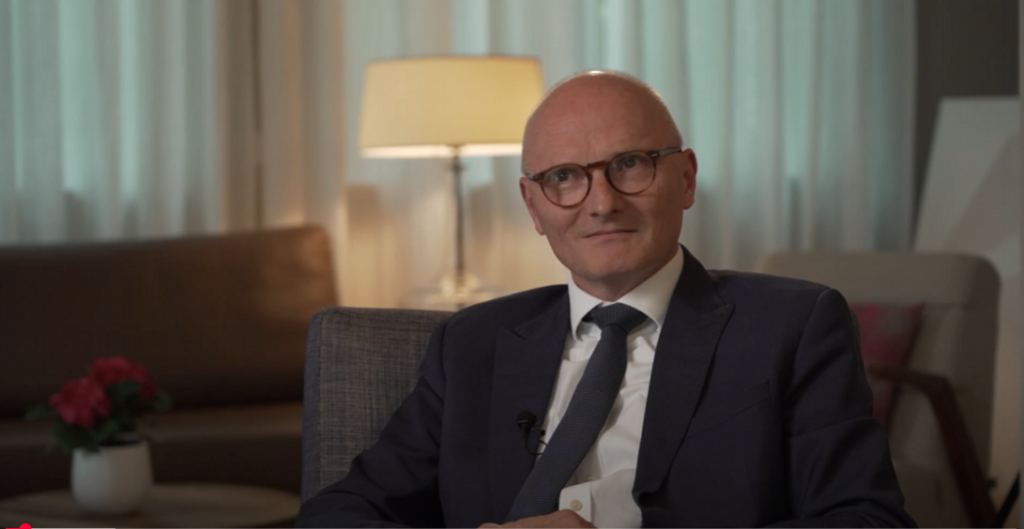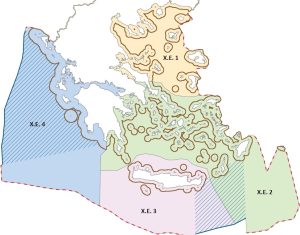Without Donald Trump there as an easy target, Democrats’ argument is much harder to make.
That was the most obvious conclusion from Tuesday’s vice-presidential debate between Republican JD Vance and Democrat Tim Walz . With deftness, discipline and finesse, Vance, the Ohio senator, prosecuted the case against the current administration while calling back to a not-always-recognizable vision of Trump’s term in office—and his exit from it—as a time of comparative peace and prosperity. Walz, the Minnesota governor, seemed nervous and struggled to make clear arguments in defense of his ticketmate, Vice President Kamala Harris .
The battle of the Midwestern dads was largely a friendly and substantive affair, with the candidates treating each other respectfully and saving their harshest attacks for the respective nominees. “I believe Sen. Vance wants to solve this,” Walz said in an answer on immigration. “But by standing with Donald Trump and not working together to find a solution…we dehumanize and villainize other human beings.”
The cordial tone was perhaps to be expected from Walz, who has carved a persona as a regular small-town guy since his surprise ascension to the national stage. His flustered demeanor and difficulty explaining his biographical misstatements were perhaps in keeping with a politician whose plain-spokenness is meant to be part of his charm. But the collegiality was a departure for Vance, who has leaned into the attack-dog role in his time on Trump’s ticket and been rewarded with the lowest popularity of any vice-presidential nominee in the modern era. Rather than inveigh against the left, he made a swing-voter-friendly pitch for the stable leadership and healthy families that he said a second Trump administration would bring.
“Honestly, Tim, I think you’ve got a tough job here,” Vance said. “You’ve got to pretend that Donald Trump didn’t deliver lower inflation, which, of course, he did. And then you’ve simultaneously got to defend Kamala Harris ’s atrocious economic record.”
It was an undercard face-off with unusually high stakes. Though running-mate debates are rarely decisive, this year’s election is so close in so many states that anything could tip the balance. Given the reservations undecided voters have about both tickets—polls show Trump is widely seen as erratic, while Harris remains something of an unknown quantity—the understudies had an opportunity to fill in the gaps. And with no further debates currently scheduled, this could be the last time the two campaigns engage each other directly—the last word the two campaigns will exchange before the election is over.
The debate unfolded against a backdrop of domestic and international calamity that highlighted the election’s importance. Iran fired a barrage of ballistic missiles at Israel in a significant escalation of the region’s widening conflict. Meanwhile, hundreds of thousands were still stranded and without power in the Southern states ravaged by Hurricane Helene , while a nascent dockworkers’ strike threatened to snarl the economy.
Walz said the chaos overseas showed a need for steady leadership, not the “fickle” governance of Trump, whose pullout from the Iran nuclear deal he said had destabilized the Mideast. Vance blamed the current administration, saying despite his reputation for chaos, “Donald Trump actually delivered stability in the world, and he did it by establishing effective deterrence.”
Both candidates seemed to agree on the need for solutions to climate change. But while Walz attacked Trump for calling global warming a “hoax,” Vance argued that increased American energy production and less trade with China would make for a cleaner world. In a pattern that became familiar as the night wore on, he agreed with his rival’s diagnosis of the problem, then pivoted to argue that the current Democratic administration—which he termed the “Kamala Harris administration”—had failed to solve it but that Trump’s policies would do so.
“Some of it, I’ll be honest with you, it even sounds pretty good,” Vance said of Harris’s proposals. “Here’s what you won’t hear, is that Kamala Harris has already done it. Because she’s been the Vice President for 3½ years, she had the opportunity to enact all of these great policies.”
Walz didn’t have much of a response to this obvious line of attack. At times he defended the Biden administration’s record; at others he argued that Trump was to blame. Walz also couldn’t explain having falsely claimed to have been in Hong Kong during the 1989 Tiananmen Square protests, chalking it up to being a “knucklehead at times.”
The candidates found many areas of agreement in principle: on the need to bring back American manufacturing, the need for bipartisan solutions to gun violence, the importance of building more housing, the unaffordability of child care. Even on the contentious issue of abortion, Vance conceded that Republicans have lost voters’ trust, and both men said women should have options. But Walz drew the line at Vance’s contention that different states should make different policies: “How can we as a nation say that your life and your rights, as basic as the right to control your own body, is determined on geography?”
Some of Vance’s descriptions of Trump strained credulity. He tried to claim that Trump had “salvaged Obamacare” when in fact as president he tried and failed to repeal the Affordable Care Act. His attempt to elucidate Trump’s recent statement that tariff policy would alleviate the high cost of child care was hardly more convincing than Trump’s original rambling answer. “He did his job, which is govern in a bipartisan way and get results, not just complain about problems, but actually solve them,” Vance said—a description of the Trump presidency few who lived through it would recognize.
Walz’s strongest moment came near the end of the debate, when he brought up the Jan. 6, 2021, riot, “the first time in American history that a president or anyone tried to overturn a fair election and the peaceful transfer of power.” When Vance tried to draw a parallel with Democrats blaming Russian collusion for handing the 2016 election to Trump, Walz pressed him to answer whether Trump lost the 2020 election.
“Tim, I’m focused on the future,” Vance said.
“That is a damning non-answer,” Walz replied.
But overall Vance proved a glib and effective messenger, and his seeming ease at making the case for an imaginary version of Trump highlighted how successful a candidate without Trump’s temperamental liabilities might be. “I’m going to thank Sen. Vance,” Walz said. “I think this is the conversation [voters] want to hear, and I think there’s a lot of agreement.” Alas, in the current campaign, it isn’t the conversation the candidates for president are actually having.
Write to Molly Ball at molly.ball@wsj.com



